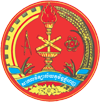Course Description
First semesterPSY511: Introduction to Quantitative & Qualitative Methods
Quantitative methods used to analyze experimental and survey data, including the multivariate statistical procedures of analysis of variance (ANOVA), regression, and factor analysis, will be covered. Students should have a working knowledge of SPSS for fundamental statistical procedures at the start of the course. Qualitative approaches to designing research and analyzing data will be introduced. The student will practice in depth interviewing skills, analyze qualitative data, and write report.
PSY512: Developmental Perspective in counseling
This course focuses on the concept of developmentally oriented counseling. It is based upon lifespan theory which makes the assumption that there is developmental logic to behavior. Counselors learn to assess and understand the client's developmental process and to provide appropriate helping strategies for clients working through developmental blocks. Students study developmental theories, concepts and principles including: psychosocial, cognitive, moral, emotional, family, career, self and cultural development.
PSY513: Communication and Interviewing Methods
This course will provide the students with counseling skills focusing on communication between counselor and client. The course will teach the students how to encourage the client to talk and how to observe the clients' behavior through their body language, eye contact, etc. Students will learn how to conduct a mental status exam, gain experience in differential diagnosis, and will be introduced to structured interview methods to assess traumatic stress, substance abuse, affective disorders, and interpersonal problems. Risk assessment will also be addressed. Attention to ethical and diversity issues including culture and gender will also be considered as they pertain to interviewing process.
Second semester
PSY521: Theories of counseling & Psychotherapy
The introductory course of Theories of Counseling and Psychotherapy's primary objective is to give students an overview of all the main areas of psychotherapy. As students learn the many different ways to help through the master's program, this introduction to the theories will also help students decide for themselves which approaches would suit them, and their area of work best for the future. The students will be assessed on participation, an end of semester presentation, and a 2000 word paper. Techniques taught or discussed in this course are e.g.: Psychodynamic Therapy, Trauma Focused Cognitive Behavioral Therapy, Behavior Therapy, Solution Focused Therapy, Family Therapy, Art Therapy, Dialectic Behavioral Therapy (mindfulness) and Experiential Therapies.
PSY522: Cultural Perspective
Students will learn the basics of cross-cultural psychology and apply it to the range of theories and methods in psychology. The aim is to equip students – as Cambodians – to critically evaluate and adapt general psychology for the local situation in Cambodia and to practice culturally competent psychology.
PSY523: Theories of Personality & Social Psychology
This course will provide a general overview of key concepts, theoretical positions, and controversial issues in personality and social psychology with an aim to deepen student's appreciation of social-psychological practice. An examination of the major theories of personality will include consideration of the psychoanalytic, dispositional, humanistic, and behaviorist models. Theories and research on such topics as attitudes, stereotype and prejudice, conformity and obedience to authority, conflict, attraction and love may be introduced from social psychology. A psychological analysis of social interaction and the dynamics of close relationships will also be discussed.
Contact Info

Head of Psychology Department
- Ms. Sek Sisokhom
- Tel: (855)12 841 332
- Email: mpsychology.info(at)rupp.edu.kh
- Email: ss_sokhom@yahoo.com
Student Life

Foreign students who are interested in studying in Cambodia should first approach their national government. read more...
